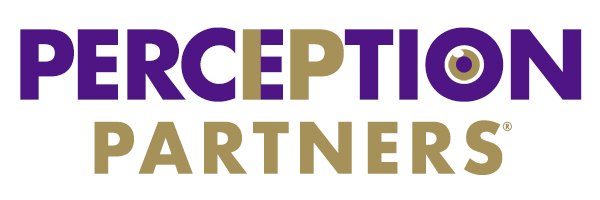Alternative Proteins Market & IP Landscape
Alternative proteins are powering a new generation of food & beverage ingredients derived from non-animal sources. They are plant-based alternatives to meat proteins. Alternative proteins are mainly derived from botanical sources (e.g., legumes and nuts), cultured (lab-grown) meat, edible insects, fungus (e.g., mushrooms), algae and more.
Alternative proteins are rapidly gaining attention from consumers as protein sources. Although still a relatively nascent market, alternative proteins are predicted to reach $17.9 billion by 2025. There is growing consumer awareness of, and a shift in, consumer preferences to alternative and plant-based proteins. This is due to: increasing concerns about antibiotics and growth hormones used in animal proteins; animal ethics issues; plant-based proteins being considered as healthy alternatives; and more these proteins being considered as more sustainable with a smaller ecological footprint.
In response to consumer demand and market forces, consumer-packaged goods (CPG) companies and food manufacturers are rolling out a range of products. These products utilize different plant-based proteins (e.g., legume, chickpea, fava beans, fungi) and biotechnological innovations (e.g., precision and biomass fermentation, plant-based emulsifiers).
For example, agricultural giant ADM partnered with New Culture (a precision fermentation company), aiming to commercialize its animal-free vegan cheese (mozzarella) in 2023. Germany-based Perfeggt hatched chickenless egg from fava beans to achieve an egg-like taste and texture.
There are still a host of technical challenges the food industry needs to overcome, including mouthfeel, texture and appearance, cost and production scale and health risks associated with highly processed ingredients. CPG companies and food manufacturers that want to capture this fast-growing market opportunity need to understand the evolving market dynamics as well as where to invest in their capabilities to develop and manufacture alternative protein products.
There are growing business opportunities in alternative and plant-based proteins, as evidenced by 60.5% CAGR organization growth in the past three years
Many CPG companies, food manufacturers and biotechnology and life sciences companies are eager to grab a forkful of the alternative protein market. The alternative protein industry raised $5 billion in investments in 2021, that is 60% increase from 2020
Market entrants also include high-quality start-ups that raised more than $50 million: Impossible Foods, Beyond Meat, Perfect Day, Aleph Farms, Ripple Foods, Meati Foods, Future Farm
Impossible Foods has raised nearly $2 billion to fund its mission of replacing all animal foods with plant-based alternatives by 2035. Perfect Day raised total funding to $750 million to make animal-free dairy products
There is a relatively sparse but rapid increase in patent protection; 66.8% of relevant patents and applications have been published since 2020
Rapid evolution of plant-based proteins is associated with rapid patent filing (82% are pending patent applications), while only 18% are granted patents (road blockers)
Patent portfolio leaders comprise a mixture of food and beverage manufacturers, ingredient suppliers, biotechnology companies, and start-ups: Nestle, DSM, Cargill, Ajinomoto, Fuji Oil, Ingredion, Impossible Foods, Sofina, MycoTechnology, Pepsico
In contrast with noticeable investments from leaders in the past 3 years, relatively sparse patent filings were noted from alternative protein start-ups. These start-ups might rely more on trade secrets as opposed to patents to protect their intellectual property and market position. As an example, Emergy/Meati filed a lawsuit accusing The Better Meat Co of trade secret misappropriation and unfair competition in 2021
Patent information and IP analytics could help new entrants determine market trends and identify opportunities to inform future business strategy
Market leaders are rolling out new technologies to maintain their competitive advantages and solidify their place in the market: precision fermentation is among the top approaches
The growing appetite for alternative proteins is driving market leaders develop new ingredients and production processes
Precision fermentation uses microbial hosts as “cell factories” for producing specific functional ingredients. It drives down the cost by making the production of cell-based meats a more viable alternative to traditional food proteins
Perfect Day adopted precision fermentation to make milk without the use of cows.
Clara Foods rolled out egg replacement products via advanced yeast engineering and fermentation technologies
Objectives of Intellar Alternative and Plant-Based Proteins IP Landscape Dashboards
Intellar Alternative and Plant-Based Proteins Landscape Dashboards are designed to visualize who is doing what, when and where - and for how much?
Key concepts in the landscape: plant-based meat, vegan meat, meat analogues, meat substitutes, vegan cheeses, non-dairy cheese, lab-grown meat and cultured meat
Data Coverage for Intellar Alternative and Plant-Based Proteins IP Landscape Dashboards
More than 1,250 de-duplicated global simple patent families published in (machine translated) English since 2015
Technical literature, scientific, medical and engineering journal abstracts, full text (when available) & images published in English since 2017
News articles, press releases, business research, market forecasts, announcements and magazine content published in English since 2019
Categorization for Intellar Alternative and Plant-Based Proteins IP Landscape Dashboards
This landscape’s technology taxonomy covers:
Alternative and Plant-Based Proteins Product Types
Alternative and Plant-Based Proteins Sources
Alternative and Plant-Based Proteins Product Attributes
Alternative and Plant-Based Proteins Benefits or Features
Alternative and Plant-Based Proteins Processes
Alternative and Plant-Based Proteins Process Parameters
Alternative and Plant-Based Proteins Culturing Ingredients
Want to develop IP strategies & insights in this landscape?
Insight-ready Intellar® market & IP landscapes



















